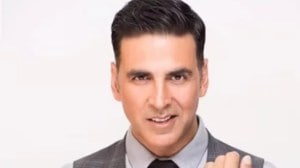Indian economy blooms but divides grow – RBI head
MUMBAI, FEB 17: India is on the threshold of an economic revolution with high growth rates and low inflation, led by a fast-growing servic...

MUMBAI, FEB 17: India is on the threshold of an economic revolution with high growth rates and low inflation, led by a fast-growing services sector and burgeoning private sector, Reserve Bank of India Governor Bimal Jalan said.
But India’s economic liberalisation, begun in 1991, has seen diverging fortunes between different sectors of the economy and society, he said.
"The state of the economy to my mind is extremely optimistic and positive. High growth, low inflation, high reserves…despite all the adverse international developments, coalitions and five governments," Jalan told a business seminar.
Growth running at 6.0-6.5 per cent annually is among the fastest in the world, foreign exchange reserves hit record highs of $ 35.17 billion in January, while wholesale price inflation below three per cent is near historic lows.
But Jalan warned that unless those parts of the economy which have been neglected are now helped by the thriving private sector the country’s growth path cannot be sustained.
"We are witnessing an increasing public sector-private sector dichotomy…we have freedom of entrepreneurship and high achievements in the private sector along with worsening public services, roads, worsening universities and primary schools and so forth," he said.
The growing gap between rewards for skilled and unskilled labour was also creating divides, while the contrast between India’s super-rich and the rest was even starker.
"The wealth of of three wealthiest entrepreneurs is higher than the state domestic product of Bihar or the wealth of Karnataka or Andhra Pradesh," he said.
Jalan shed no light on the central bank’s intentions over interest rates, where a cut would help Finance Minister Yashwant Sinha keep a lid on the fiscal deficit, as India currently spends almost 50 per cent of its revenues servicing internal debt.
The central banker said the question of taxation and spending in India’s complex political economy must ultimately be answered by its democracy. Finance Minister Yashwant Sinha announces India’s annual budget on February 29, and has already warned it will be tough.
"If the fiscal deficit is high it is the problem of everybody. Everyone should know how to tackle it, how to mop up more resources and bring down expenditure," Jalan said.
India aimed to bring down its fiscal deficit to four per cent of GDP in the year ending March 2000, but government officials have already warned it could be five per cent.





- 01
- 02
- 03
- 04
- 05


























